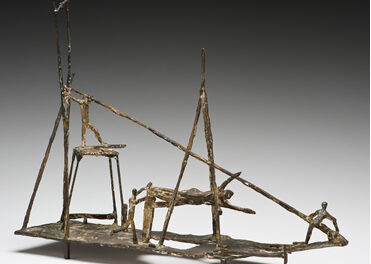St. Stephen’s Episcopal Church, in the historic Hope Valley area of Southeast Durham, has always had an extensive musical out reach. One of the delights of the St. Stephen’s Concert Series has been regular appearances of the Borromeo String Quartet. The first violinist of the ensemble, Nicholas Kitchen, son of Dorothy and Joseph Kitchen, has literally grown up in the church and its community. With a father active as the church’s director of music and a mother who is director of Duke University’s String School, Nicholas’ artistic growth has been well known since his pre-teen years. He also studied the violin with Giorgio Ciompi, founder of the Ciompi String Quartet. Nicolas and his wife, cellist Yeesum Kim, are the founding members of the Borromeo String Quartet. Violist Mai Motobuchi has been with the group for some time, and the most recent member, second violinist Kristopher Tong, has settled in superbly. Now all four players eschew struggling with printed scores and use apple PCs, turning “pages” easily with a foot pedal.
The Borromeo Quartet’s program sandwiched a new work by Lera Auerbach (b.1973) between an early and a middle string quartet by Ludwig van Beethoven (1770-1827). The Second String Quartet No. 2 in G, Op. 18/2, the shortest quartet of the six in the set, most nearly resembles the classical style of Haydn and Mozart. The short, supple elegant phrases of the opening movement led to the Second Quartet’s nickname, “Compliments,” the give-and-take having been said to resemble the exaggerated courtesy of 18th century salons. A serene slow movement, dominated by the first violin, follows. Both violins toss melodic flourishes back-and-forth in the Scherzo. These high spirits are carried over into the rollicking and syncopated phrases of the last movement which the composer referred to as “unbuttoned.” The Borromeo players brought out all the elegance of this witty early work while balancing Beethoven’s heavy humorous touches. Intonation and phrasing were perfectly judged and dynamics were subtly scaled for maximum effect.
Russian born Lera Auerbach is a rising star among today’s composers. Besides being a composer, she is a concert pianist, a poet, and a novelist. In Russia, she composed an opera when she was 12 years old — and it was produced. At The Juilliard School, she studied piano with Joseph Kalichstein and composition with Milton Babbitt. Nicholas Kitchen talked about Auerbach’s music in the Prelude to the concert. The quartet played excerpts from her Fourth String Quartet, “Findings” (2007), and Kitchen explained its unusual origins. The Borromeo Quartet will play all four of Auerbach’s quartets in the future.
Kitchen said Auerbach was staying in an old house in Germany. The elderly owner of the house showed her his father’s strange collection, often fragments of music or bits of odd objects, “ill-considered trifles.” The name “Findings” comes from this haphazard jumble which inspired Auerbach to create sixteen mostly brief sections played as one seamless movement. At times, the composer asks the players to really press down with their bows to create the maximum sound. Musical fragments suggest the nature of her inspiration. Sometimes an eerie sound is created by bowing close to the bridge. There was the slightest suggestion of Samuel Barber’s “Adagio” in the hovering harmonics of No. 3, marked “Religioso.” A klezmer-like rhythm suggests the 7th movement “Games in the Jewish ghetto.” No. 12 featured a jazz-like sound but with what Kitchen called “all wrong notes.” A high, hushed tremolo dominated No. 13, “Faces of Time.” The last movement featured floating chords evoking stillness with each player taking turn “meditating.” The Borromeo Quartet made the best possible case for this 23-minute work, displaying an extraordinarily wide palette of tonal color and dynamics.
The concert ended with a joyful, magnificent performance of the first of Beethoven’s Middle String Quartets, the F, Op. 59/1. The set of three are called “Rasoumowsky” after Count Andreas Rasoumowsky, Russian ambassador to the Imperial Court at Vienna, who commissioned the works from the composer. It is not known whether the Count asked Beethoven to include a Russian melody in the work or whether the composer did it to honor his patron.
According to Melvin Berger in Guide to Chamber Music, “it has been determined that Beethoven derived the melody (used in the Finale) from a collection of Russian folk songs published by Ivan Pratsch.” The Count was a talented cellist, and the cello is featured extensively in all four movements. Yeesun Kim’s playing of these glorious cello parts was simply breath-taking. The give-and-take between the players was superb. Attacks were precise, rhythms were rock solid, and phrasing was flawless. This interpretation ought to be committed to disc as soon as possible!
Kitchen is outstanding in the role of what the BBC would call “a Presenter.” The Prelude lectures with him and the ensemble are not to be missed. The quartet plays germane excerpts of music after Kitchen has focused attention on the relevant features of a piece. With the concerts starting at 4:00 p.m., the Preludes would be better scheduled at 2:30 p.m. rather than 3:00 p.m. so as to allow attendees to get to the hall.
The Borromeo String Quartet will be absent from St. Stephen’s Concert Series 2010-11 but Nicolas Kitchen will give a violin recital November 21, 2010, and the quartet will appear as part of the Chamber Arts Society’s 2010-11 Season at Duke University.











